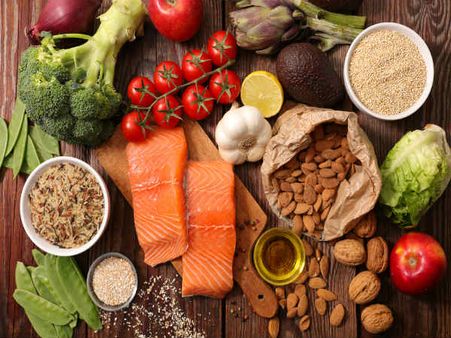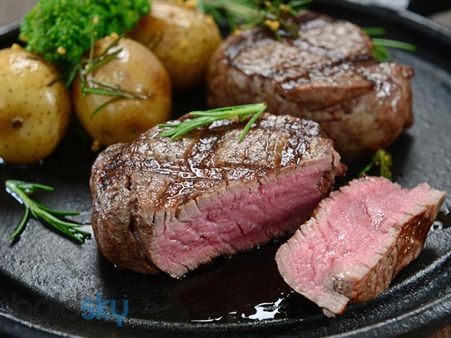Just In
- 4 hrs ago

- 13 hrs ago

- 14 hrs ago

- 15 hrs ago

Don't Miss
- Education
 JEE Main Result 2024 Out, Telangana's 15 Toppers Shine, Check Statewise List of 56 Candidates with Perfect 100
JEE Main Result 2024 Out, Telangana's 15 Toppers Shine, Check Statewise List of 56 Candidates with Perfect 100 - Sports
 Who Won Yesterday's IPL Match 40? DC vs GT, IPL 2024 on April 24: Delhi Capitals Clinch High-Scoring Thriller At Kotla
Who Won Yesterday's IPL Match 40? DC vs GT, IPL 2024 on April 24: Delhi Capitals Clinch High-Scoring Thriller At Kotla - News
 Mangalsutra Row: Did Indira Gandhi Donate Gold During The 1962 War? The Facts Behind Priyanka's Claim
Mangalsutra Row: Did Indira Gandhi Donate Gold During The 1962 War? The Facts Behind Priyanka's Claim - Movies
 Kota Factory 3 OTT Release Date, Platform: When Will Jitendra Kumar's Web Series Premiere On Netflix?
Kota Factory 3 OTT Release Date, Platform: When Will Jitendra Kumar's Web Series Premiere On Netflix? - Travel
 Escape to Kalimpong, Gangtok, and Darjeeling with IRCTC's Tour Package; Check Itinerary
Escape to Kalimpong, Gangtok, and Darjeeling with IRCTC's Tour Package; Check Itinerary - Finance
 DCB Bank Q4 Results: PAT Grew 9% To Rs 156 Cr, NII Jumps 4.5%; Dividend Declared
DCB Bank Q4 Results: PAT Grew 9% To Rs 156 Cr, NII Jumps 4.5%; Dividend Declared - Technology
 OPPO Find X7 Ultra Camera Deep-Dive: Pushing the Boundaries of Photography on a Smartphone
OPPO Find X7 Ultra Camera Deep-Dive: Pushing the Boundaries of Photography on a Smartphone - Automobiles
 Aston Martin Vantage Launched In India At Rs 3.99 Crore
Aston Martin Vantage Launched In India At Rs 3.99 Crore
Psoriatic Arthritis Diet: Foods To Eat And Avoid
Psoriatic arthritis is a chronic inflammatory autoimmune joint disease that affects some people who have psoriasis - a chronic, inflammatory autoimmune skin condition that causes red, itchy scaly patches on the skin [1]. Psoriatic arthritis is one of the most common types of arthritis that comes right after osteoarthritis and rheumatoid arthritis.
Psoriatic arthritis occurs when the body's immune system attacks the healthy cells and tissues. This abnormal immune response causes inflamed and painful joints. Joint pain, swelling and stiffness are the main symptoms of psoriatic arthritis [2].

While there's no cure for psoriatic arthritis, some medications such as non-steroidal anti-inflammatory drugs (NSAIDs), disease-modifying antirheumatic drugs (DMARDs) and immunosuppressants are used to control joint inflammation.
Along with medication treatment, making certain dietary changes can help control inflammation and reduce your symptoms. Research studies have shown that making healthy food choices can help in managing psoriasis or psoriatic arthritis [3].
In this article, we'll talk about the psoriatic arthritis diet and the foods to eat and avoid.
Foods To Eat For Psoriatic Arthritis

Anti-inflammatory omega 3 fats-rich foods
Since joint inflammation is a major symptom of psoriatic arthritis consuming foods rich in anti-inflammatory omega 3 fatty acids can help decrease inflammation.
Omega 3 fats are a type of polyunsaturated fatty acids (PUFAs) that have anti-inflammatory properties which can help reduce the disease severity of psoriatic arthritis. A study showed that individuals with psoriatic arthritis, who received omega 3 PUFA supplements for 24 weeks, resulted in lowering disease activity, joint redness and tenderness [4].
Here is a list of foods that are rich in anti-inflammatory omega 3 fats:
- Fatty fishes like salmon and tuna
- Walnuts
- Flaxseeds
- Chia seeds
- Edamame
- Hemp seeds
- Seaweed and algae


High-fibre whole grains
Studies have shown the association between psoriatic disease and obesity. So, people with psoriatic arthritis should manage their weight and control their blood sugar levels [5].
Whole grains are loaded with fibre, which can help reduce inflammation and prevent a spike in blood sugar levels [6].
Here is list of whole grains that are high in fibre:
- Whole oats
- Whole wheat
- Quinoa
- Brown rice
- Wild rice
- Corn

Antioxidant-rich foods
Consuming foods rich in antioxidants can help decrease chronic inflammation by preventing damage linked to harmful oxidative stress [7] [8].
Here is a list of foods that are good sources of antioxidants:
- Dark leafy green vegetables
- Fresh fruits
- Nuts
- Dark chocolate
- Dried ground spices
- Tea and coffee

Foods To Avoid For Psoriatic Arthritis

Red meat
Consumption of fatty red meat can increase inflammation, weight gain and worsen psoriasis symptoms. Also meat is a good source of protein, so you may not want to decrease your intake of protein.
Avoid eating red meat and instead eat chicken, fish, nuts, beans and legumes as they are good sources of protein and will help in managing psoriatic arthritis.

Processed foods
Processed foods have a lot of sugar, salt and fat and lack in essential nutrients. Studies have shown that processed foods trigger the symptoms of psoriatic arthritis [9]. So, it is best to avoid eating them.

Dairy products
People with psoriatic arthritis may have an intolerance to dairy products. A study showed that dairy may serve as a triggering factor for psoriatic arthritis [10].
Other foods that should be completely avoided are:
- Sugary foods and drinks
- Alcohol
- Fried foods
- White bread and white rice
- Candy

Diets You May Consider For Psoriatic Arthritis
There are some types of diets that are thought to be beneficial for people living with psoriatic arthritis. But there is limited evidence to show that these diets actually improve psoriatic arthritis. Let's have a look at these diets.
- Paleo diet
- Mediterranean diet
- Anti-inflammatory diet
- Weight-loss diet
- Gluten-free diet
The paleo diet, also known as the caveman diet, includes choosing healthy foods such as fruits, vegetables, nuts, seeds and fish and excludes processed foods and dairy. According to the National Psoriasis Foundation, certain diets including the paleo diet can help in weight management and may help improve psoriatic arthritis symptoms.
The Mediterranean diet emphasises on consuming foods such as fruits, vegetables, nuts, whole grains and olive oil and avoids consuming red meat, processed foods and dairy. Fresh fruits and veggies, whole grains, nuts and olive oil possess anti-inflammatory properties.
An anti-inflammatory diet includes foods such as olive oil, fruits, green leafy vegetables, nuts and fatty fishes which may help reduce inflammation, thanks to their anti-inflammatory properties.
Psoriasis and psoriatic arthritis increase the risk of other health complications like obesity. So, individuals with psoriatic arthritis need to manage their weight. According to the National Psoriasis Foundation, your weight-loss diet should include foods such as fruits, vegetables, whole grains, lean meat, fish, beans, eggs, chicken and nuts.
People who are sensitive to gluten or who have celiac disease should opt for a gluten-free diet as this may reduce the severity of psoriatic arthritis flare-ups [11].
To Conclude...
Making healthy dietary changes can help alleviate the symptoms of psoriatic arthritis. However, make sure to talk to your doctor about choosing a dietary pattern that's right for you to help you manage your symptoms better.
-
 healthRussian Influencer Starves His Newborn To Death With Sunlight Diet, Know Dos And Don’ts Of This Diet
healthRussian Influencer Starves His Newborn To Death With Sunlight Diet, Know Dos And Don’ts Of This Diet -
 healthExclusive: New Year 2024: Let's Understand The Value Of Nutrition Resolution And Set Realistic Goals!
healthExclusive: New Year 2024: Let's Understand The Value Of Nutrition Resolution And Set Realistic Goals! -
 healthChristmas 2023: Healthy Christmas Feast To Enjoy Without Derailing Your Diet
healthChristmas 2023: Healthy Christmas Feast To Enjoy Without Derailing Your Diet -
 healthWhat Would Happen To Your Body If You Give Up Non-vegetarian Food For A Month?
healthWhat Would Happen To Your Body If You Give Up Non-vegetarian Food For A Month? -
 healthFrom Seeds to Nuts: The Must-Have Foods in a Fertility-Enhancing Diet for Men
healthFrom Seeds to Nuts: The Must-Have Foods in a Fertility-Enhancing Diet for Men -
 pregnancy parentingWhat Are The 4 Must Have Vitamins For Kids With Diabetes?
pregnancy parentingWhat Are The 4 Must Have Vitamins For Kids With Diabetes? -
 wellness5 Reasons Why You Might Want To Think Twice Before Embracing A Juice Cleanse
wellness5 Reasons Why You Might Want To Think Twice Before Embracing A Juice Cleanse -
 insyncCulinary Surprises: 4 Indian Dishes That Aren't Actually Indian!
insyncCulinary Surprises: 4 Indian Dishes That Aren't Actually Indian! -
 healthDid You Know These 4 Foods Taste Exactly Like Cola?!
healthDid You Know These 4 Foods Taste Exactly Like Cola?! -
 healthDoes This Everyday Cooking Ingredient Trigger Diabetes?
healthDoes This Everyday Cooking Ingredient Trigger Diabetes? -
 healthPesticides In Food Reducing Sperm Count: Is Your Food Pesticide-Ridden?
healthPesticides In Food Reducing Sperm Count: Is Your Food Pesticide-Ridden? -
 healthSinger Shakira Loves These 2 Indian Sweets! How To Make It Diet-Friendly?
healthSinger Shakira Loves These 2 Indian Sweets! How To Make It Diet-Friendly?


 Click it and Unblock the Notifications
Click it and Unblock the Notifications




